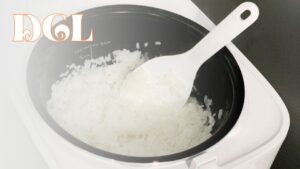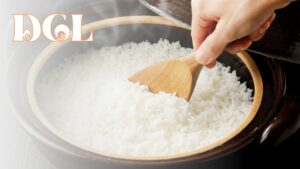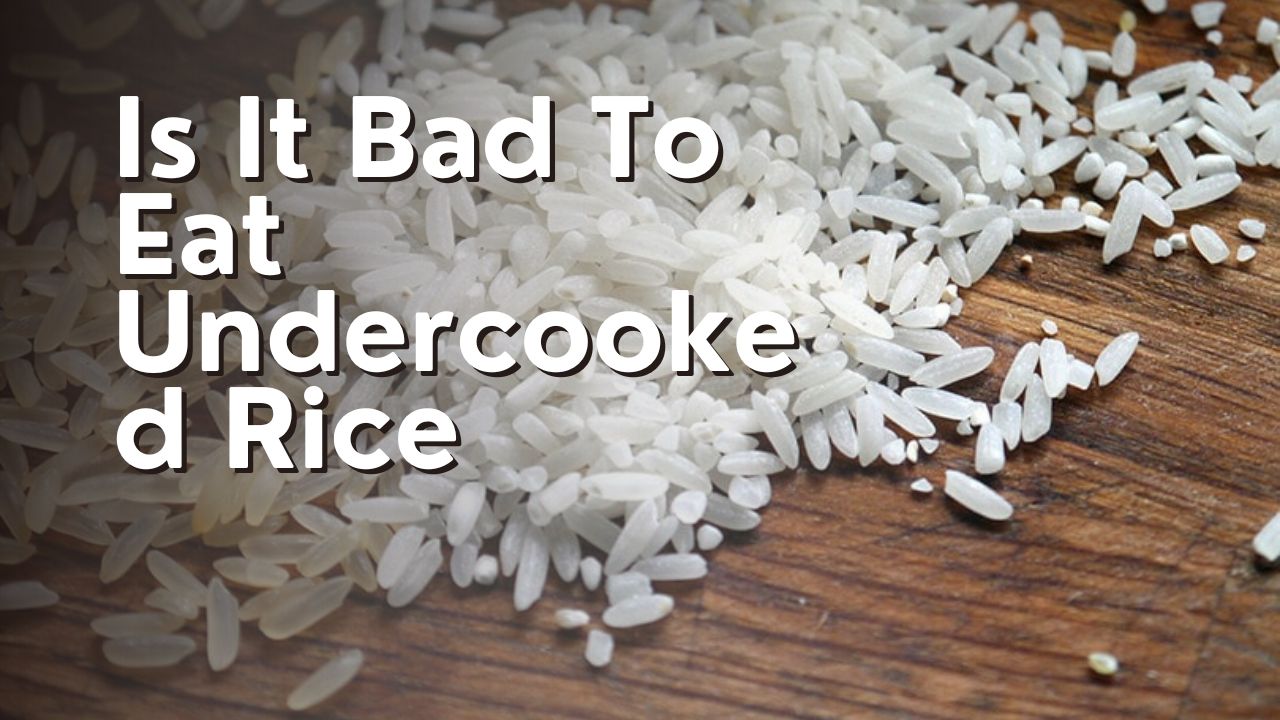Hey there! Have you ever wondered if it’s really bad to eat undercooked rice? Well, I’m here to shed some light on this topic.
You see, undercooked rice can actually pose potential dangers to our health. One of the main risks is bacterial contamination, which can lead to foodborne illnesses. Consuming raw or undercooked starches, like rice, can also have negative effects on our digestive system.
But don’t worry, I’ve got your back! In this article, we’ll explore the potential dangers of undercooked rice and discuss the importance of cooking it properly for our health and safety.
I’ll also provide you with some tips on how to cook rice safely, so you can enjoy this delicious staple without any worries. So, let’s dive in and find out why it’s crucial to ensure our rice is cooked thoroughly.
Potential Dangers of Undercooked Rice
Consuming undercooked rice can pose potential health risks. When rice is not cooked properly, it may contain harmful bacteria called Bacillus cereus. This bacterium is commonly found in soil and can survive in dry conditions, like uncooked rice. If the rice is not cooked at a high enough temperature, these bacteria can multiply and produce toxins that may cause food poisoning.
One of the dangers of eating undercooked rice is the risk of gastrointestinal problems. The toxins produced by Bacillus cereus can cause symptoms such as abdominal pain, diarrhea, and vomiting. These symptoms can be quite severe and may last for several days. In some cases, medical attention may be required to manage the symptoms and prevent dehydration.
Another potential danger of undercooked rice is the risk of bacterial infections. Consuming contaminated rice can lead to illnesses such as salmonellosis or E. coli infection. These infections can cause symptoms like fever, nausea, and diarrhea. In severe cases, they can even lead to complications that affect the kidneys or other organs.
To avoid these risks, it is important to cook rice thoroughly. Make sure the rice is boiled at a high temperature and cooked for the recommended time. Leftover rice should also be stored properly and reheated thoroughly before consumption. By taking these precautions, you can minimize the potential dangers associated with undercooked rice and enjoy this staple food without worry.

Bacterial Contamination and Foodborne Illnesses
Bacterial contamination can lead to foodborne illnesses when rice is not cooked properly. When rice is undercooked, it may contain harmful bacteria such as Salmonella or Bacillus cereus. These bacteria can survive in uncooked or improperly cooked rice and cause gastrointestinal problems when consumed.
Salmonella is a common bacteria found in raw poultry, eggs, and sometimes even in dry foods like rice. If rice is not cooked at a high enough temperature, these bacteria can survive and multiply, leading to symptoms such as diarrhea, vomiting, and abdominal pain. In severe cases, it can even lead to dehydration and hospitalization.
Bacillus cereus is another type of bacteria that can be found in undercooked rice. It produces toxins that can cause food poisoning when ingested. Symptoms of Bacillus cereus food poisoning include nausea, vomiting, and abdominal cramps. In some cases, it can also lead to diarrhea and fever.
To prevent bacterial contamination and foodborne illnesses, it is important to cook rice thoroughly. This means ensuring that the rice is cooked at a temperature of at least 165°F (74°C) to kill any bacteria present. It is also important to store cooked rice properly, refrigerating it within two hours of cooking and consuming it within a day.
Overall, eating undercooked rice can increase the risk of bacterial contamination and foodborne illnesses. It is essential to cook rice thoroughly to ensure its safety and avoid potential health risks.
Risks of Consuming Raw or Undercooked Starches
Imagine the excitement of biting into a warm, doughy bread or sinking your teeth into a creamy, smooth potato. But did you know the risks that come with indulging in raw or undercooked starches?
While it may be tempting to enjoy the taste and texture of these foods, there are potential dangers that we should be aware of.
Raw or undercooked starches, such as rice, can harbor harmful bacteria that can cause foodborne illnesses. When rice is not cooked properly, it may contain spores of Bacillus cereus, a bacterium that can produce toxins. These toxins can lead to symptoms like nausea, vomiting, and diarrhea. In severe cases, it can even cause more serious complications.
Moreover, undercooked starches can also be difficult for our bodies to digest. When starches are not cooked thoroughly, they can be harder to break down, leading to digestive issues like bloating, gas, and discomfort. This is especially important for individuals with digestive sensitivities or conditions like irritable bowel syndrome.
To avoid these risks, it is crucial to cook starches, including rice, thoroughly. By cooking them until they are soft and fully cooked, we can ensure that any potential bacteria are killed, and the starches are easier for our bodies to digest.
So, the next time you indulge in your favorite starches, make sure they are cooked properly to enjoy them safely and without any worries.
Tips for Cooking Rice Safely
When it comes to cooking rice safely, here are some helpful tips to ensure a delicious and worry-free meal.
- Rinse the rice before cooking: Rinsing removes excess starch and any impurities that may be present on the grains. It also helps to prevent the rice from becoming sticky or clumpy.
- Use the right ratio of water to rice: The ratio of water to rice is crucial for achieving perfectly cooked rice. Generally, the ratio is one part rice to two parts water. However, this may vary depending on the type of rice you are using, so be sure to check the package instructions.
- Cook rice in a covered pot: Cooking rice in a covered pot helps to retain the steam and heat, ensuring that the rice cooks evenly and thoroughly.
- Let the rice rest before serving: After the rice is cooked, it is important to let it rest for a few minutes before serving. This allows the grains to firm up and become fluffier.
By following these tips, you can ensure that your rice is cooked safely and deliciously. So go ahead and enjoy a bowl of perfectly cooked rice without any worries.

Importance of Properly Cooked Rice for Health and Safety
Properly cooked rice is essential for ensuring the health and safety of individuals. When rice is undercooked, it can pose serious health risks. Undercooked rice may contain harmful bacteria, such as Bacillus cereus, which can cause food poisoning. These bacteria can survive in undercooked rice and multiply rapidly, leading to symptoms like nausea, vomiting, and diarrhea. Therefore, it is important to cook rice thoroughly to eliminate any potential bacteria and ensure its safety for consumption.
Cooking rice properly involves following a few important steps. First, it is crucial to wash the rice before cooking to remove any impurities or excess starch. Then, using the right amount of water and cooking the rice at the correct temperature and time is essential. This ensures that the rice is cooked evenly and thoroughly, eliminating any potential bacteria that may be present.
In addition to food safety, properly cooked rice also ensures its nutritional value. Cooking rice properly helps to retain its nutrients and makes it easier for our bodies to digest and absorb them. Undercooked rice may be harder to digest and may cause bloating or discomfort in some individuals.
To sum up, properly cooked rice is vital for maintaining the health and safety of individuals. It eliminates the risk of food poisoning and ensures the retention of essential nutrients. So, always take the necessary precautions and cook your rice thoroughly to enjoy a safe and nutritious meal.
Frequently Asked Questions
Can undercooked rice cause any long-term health issues?
Undercooked rice can cause food poisoning, leading to symptoms like nausea, vomiting, and diarrhea. If consumed repeatedly, it may result in long-term health issues like dehydration, nutrient deficiencies, and gastrointestinal problems.
Can reheating undercooked rice make it safe to consume?
Reheating undercooked rice can make it safe to consume by killing any harmful bacteria that may be present. However, it is important to ensure that it is reheated thoroughly to avoid any potential health risks.
Does rinsing rice before cooking eliminate the risk of undercooked rice?
Rinsing rice before cooking does not eliminate the risk of undercooked rice. It’s important to cook rice properly to avoid potential health risks associated with consuming undercooked rice.
How can I tell if rice is cooked properly?
To tell if rice is cooked properly, I check the texture and taste. Properly cooked rice should be tender and not too hard or mushy. I also make sure it’s not undercooked or crunchy.
Are there any alternatives to cooking rice to avoid the risk of undercooking?
There are alternatives to cooking rice to avoid the risk of undercooking. One option is to use instant rice, which is pre-cooked and only requires rehydration. Another option is to try rice substitutes like quinoa or cauliflower rice.
Conclusion
In conclusion, it is crucial to avoid eating undercooked rice due to the potential dangers it may pose. Undercooked rice can harbor bacterial contamination, leading to foodborne illnesses.
Additionally, consuming raw or undercooked starches can be risky for our health.
To ensure our safety, it is important to cook rice thoroughly, following proper cooking techniques. By doing so, we can enjoy rice dishes without compromising our well-being.
Stay safe and cook your rice well!


